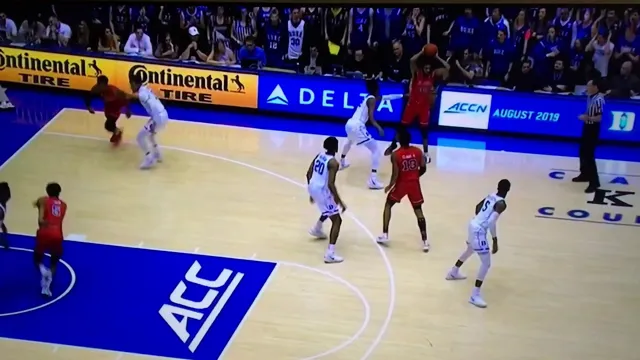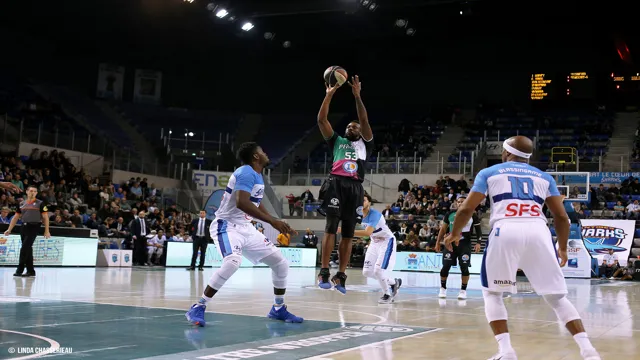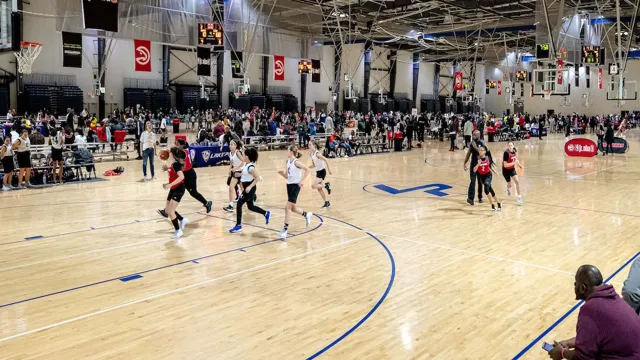Basketball is an exhilarating sport that requires skill, teamwork, and strategic thinking. Whether you are a beginner or an experienced player, understanding various basketball strategies can significantly impact your performance on the court. In this article, we will explore some essential strategies that can help you elevate your game and dominate your opponents.
Introduction
Basketball is more than just running up and down the court and shooting hoops. It involves a deep understanding of the game, strategy development, and teamwork. Whether you’re playing in a casual setting or at a competitive level, having a well-rounded knowledge of basketball strategies can give you a significant advantage over your adversaries.
Understanding the Basics
Before delving into advanced strategies, mastering the fundamentals is essential. Dribbling and ball handling are the foundations of offense, while shooting techniques can make or break a game. Additionally, honing your rebounding skills can give your team second-chance opportunities to score.
Dribbling and Ball Handling
Dribbling is the art of controlling the ball while moving around the court. A skilled ball handler can maneuver through the defense, open up passing lanes, and create scoring opportunities for themselves and their teammates. Practicing dribbling drills regularly can improve your confidence and control on the court.
Shooting Techniques
Shooting is one of the primary ways to score in basketball. Different shooting techniques include jump shots, layups, hook shots, and three-pointers. Each player should develop their shooting skills and find their preferred shooting positions on the court.
Rebounding Skills
Rebounding is crucial in both offense and defense. Securing offensive rebounds gives your team extra possessions, while defensive rebounds prevent your opponents from getting second-chance points. Boxing out and positioning yourself well under the basket are essential skills for becoming a reliable rebounder.
Offensive Strategies
A well-executed offensive strategy can dismantle even the toughest defenses. Here are some effective offensive strategies to consider:
Fast Break Offense
The fast break is an aggressive offensive strategy that involves pushing the ball up the court quickly after gaining possession. It catches the defense off guard and creates scoring opportunities before they can set up their defense.
Pick-and-Roll Plays
The pick-and-roll is a classic offensive tactic that involves one player setting a screen (pick) for the ball handler. The ball handler can then use the screen to drive to the basket or create space for a jump shot. This strategy requires precise timing and coordination between the players involved.
Motion Offense
Motion offense is a fluid strategy that emphasizes constant movement, passing, and cutting without a specific play structure. It relies on players reading and reacting to the defense, creating open shots and driving lanes. Motion offense requires good communication and basketball IQ among the teammates.
Defensive Strategies
Defense wins championships, and implementing effective defensive strategies can disrupt your opponents’ offense and lead to turnovers. Here are three common defensive strategies:
Man-to-Man Defense
Man-to-man defense involves assigning each defender to mark a specific opponent. It requires close monitoring of the player you’re guarding, denying passes, and challenging shots. Man-to-man defense can be effective in limiting scoring opportunities for the opposing team.
Zone Defense
Zone defense involves players guarding specific areas of the court rather than individual opponents. This strategy can be useful against teams with strong individual players or when defending against certain offensive plays. Effective communication and coordination are essential in zone defense.
Press Defense
Press defense is an aggressive full-court strategy aimed at disrupting the opposing team’s offense and forcing turnovers. It involves putting intense pressure on the ball handler and denying passing lanes. Press defense can be mentally and physically challenging for the opponents.
Transition Game
The transition game refers to the ability to switch quickly between offense and defense. Fast breaks and quick defensive rotations are crucial elements of the transition game. Teams that excel in this aspect can catch their opponents off guard and capitalize on scoring opportunities.
Teamwork and Communication
Basketball is a team sport, and effective teamwork can often overcome individual talent. Communication is the key to successful teamwork on the court. Clear and concise communication among teammates helps coordinate plays, identify defensive assignments, and alert teammates of potential threats.
Importance of Communication
Effective communication allows for quicker decision-making, improves defensive rotations, and enhances overall court awareness. It is essential to establish open lines of communication with your teammates to ensure smooth gameplay.
Building Team Chemistry
Team chemistry refers to the camaraderie and understanding among teammates. Building strong team chemistry fosters trust, improves morale, and leads to better on-court performance. Team-building activities and spending time together off the court can enhance team chemistry.
Mental Toughness in Basketball
Basketball is as much a mental game as it is physical. Developing mental toughness can help players overcome pressure situations, stay focused, and make better decisions on the court.
Overcoming Pressure Situations
Crunch time moments, such as close games or free throws, can be mentally challenging. Practicing under pressure and maintaining composure can make a significant difference in high-stakes situations.
Visualization and Focus
Visualization techniques can help players mentally rehearse plays, improve decision-making, and enhance overall performance. Maintaining focus on the present moment is crucial to make quick and accurate decisions on the court.
Utilizing Player Positions
Understanding the roles and responsibilities of each player position is vital for team success. Here’s a brief overview of player positions and their general functions:
Point Guard
The point guard is typically responsible for setting up plays, distributing the ball, and controlling the tempo of the game. They are often the team’s primary ball handler and playmaker.
Shooting Guard
The shooting guard is known for their scoring ability and shooting prowess. They often provide perimeter scoring threats and can excel at catch-and-shoot situations.
Small Forward
The small forward is versatile and plays a crucial role in both offense and defense. They can score, rebound, and defend multiple positions on the court.
Power Forward
The power forward is typically a strong and physical player who excels in rebounding, post play, and interior defense. They provide scoring and defensive presence in the paint.
Center
The center is often the tallest player on the team and specializes in rebounding, shot-blocking, and interior scoring. They play a pivotal role in protecting the paint and anchoring the defense.
Mastering Free Throws
Free throws are uncontested shots awarded to players after a foul. Mastering free throws is crucial as they provide an excellent opportunity to score points without opposition. Consistent practice and focus on technique can significantly improve free throw shooting percentages.
Inbound Plays
Inbound plays occur when the ball is thrown back into play from out of bounds. These plays are designed to create scoring opportunities for the offense. Having a variety of well-executed inbound plays can catch the defense off guard and result in easy baskets.
Winning Strategies in Crunch Time
Crunch time refers to the closing moments of a game when the score is tight, and every possession matters. During crunch time, executing well-practiced plays, making smart decisions, and maintaining composure can make the difference between victory and defeat.
Effective Coaching Techniques
Coaches play a pivotal role in guiding and motivating players to perform at their best. Here are some effective coaching techniques:
Motivating Players
Motivation is essential to drive players to give their best effort and continuously improve. Coaches should provide constructive feedback, set realistic goals, and instill a positive team culture.
Analyzing Opponents
Studying opponents’ strengths, weaknesses, and preferred strategies allows coaches to develop game plans and defensive strategies tailored to counter them effectively.
Making In-Game Adjustments
Basketball games are dynamic, and coaches must make timely adjustments based on the flow of the game. Adjusting offensive and defensive strategies can give the team an edge and exploit opponents’ weaknesses.
Staying Fit and Injury Prevention
Basketball is physically demanding, and maintaining overall fitness is crucial for peak performance and injury prevention. Engaging in strength training, conditioning exercises, and proper warm-ups can reduce the risk of injuries and enhance on-court performance.
Basketball Drills for Skill Development
Regular practice drills are essential for improving basketball skills. Some common drills include shooting drills, dribbling drills, passing drills, and defensive drills. Incorporating a variety of drills into practice sessions can enhance players’ overall skillset.
Conclusion
Basketball strategies encompass various aspects of the game, from offense and defense to teamwork and mental toughness. By understanding and implementing these strategies, players can take their game to the next level. Remember to continuously practice, communicate effectively, and develop a deep understanding of the game. By doing so, you can excel on the court and enjoy the thrill of basketball to the fullest.
FAQs
Q1: How can basketball strategies help improve my game? Basketball strategies provide a structured approach to the game, allowing players to make better decisions, exploit opponents’ weaknesses, and enhance overall team performance.
Q2: Which defensive strategy is more effective, man-to-man or zone defense? Both defensive strategies have their advantages and disadvantages. The choice depends on the team’s strengths, opponents’ playing style, and the coach’s preference.
Q3: Can mental toughness be developed in basketball? Yes, mental toughness can be developed through practice, visualization techniques, and maintaining focus during pressure situations.
Q4: How important is communication in basketball? Communication is vital in basketball as it enhances teamwork, improves defensive rotations, and ensures better coordination among teammates.
Q5: Are there specific drills to improve shooting skills? Yes, shooting drills such as form shooting, spot shooting, and game-situation shooting can significantly improve shooting skills when practiced consistently.


